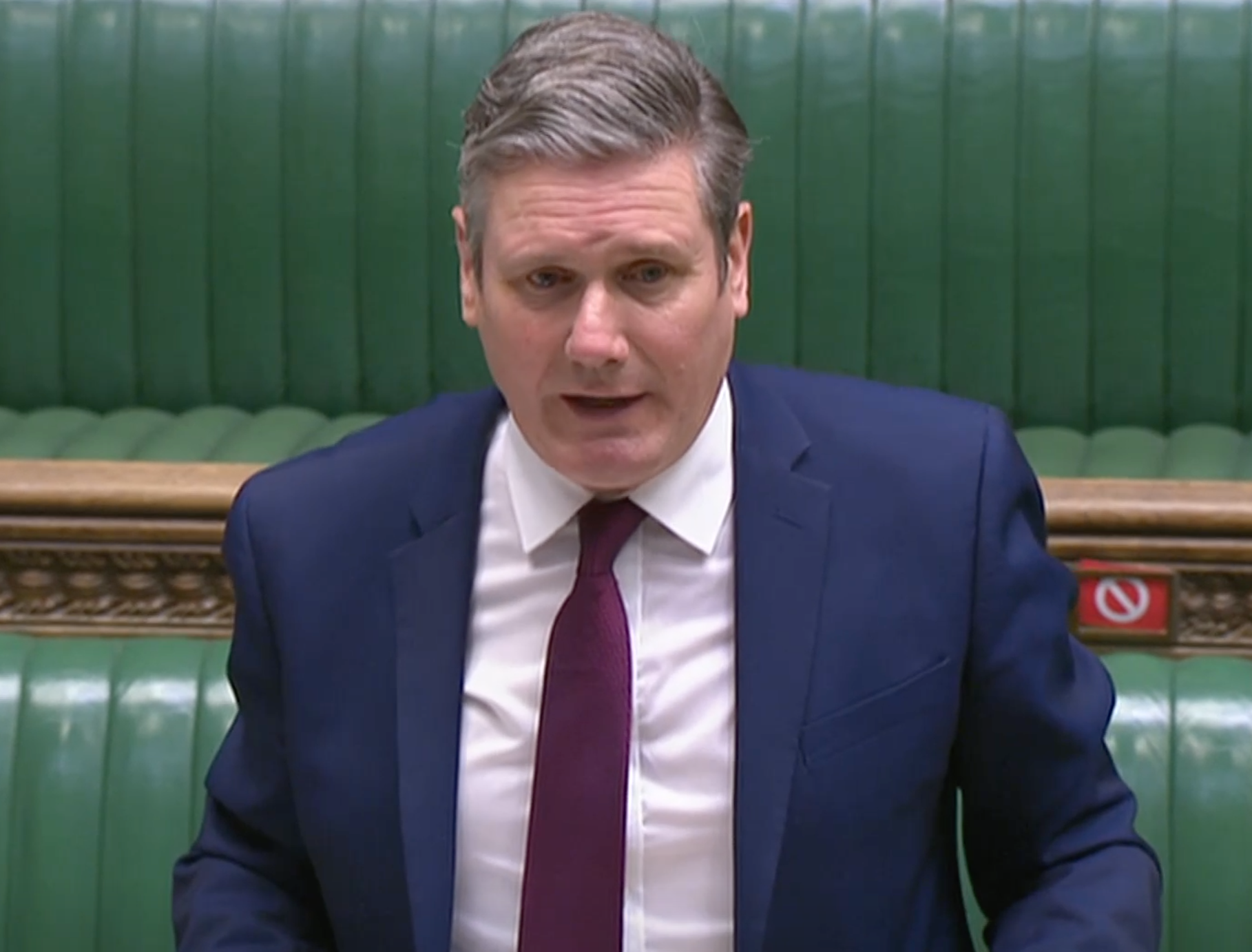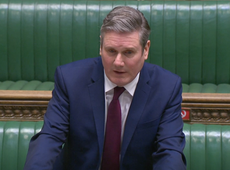Keir Starmer and Labour are being unrealistic about sealing Britain’s borders
The question is not open borders or closed ones, but what level of restriction is proportionate to the risk we face, says John Rentoul


Keir Starmer’s latest slogan is punchy: “Our schools are shut and our borders are open.” But this is pure opportunism. Labour agrees with the schools being shut, and the party’s criticism of Boris Johnson on airport hotel quarantine, that he should be going faster and further, is mere opposition by numbers.
It is an easy line of attack for the opposition to complain that the government is too slow – the hotel rooms won’t be ready for another 10 days – and that it ought to be quarantining arrivals from all countries, not just those on the “red list”. It sounds good and opinion polls suggest that the voters agree with sentiments as simple as closing our borders completely and doing it yesterday.
“Too little, too late,” is an easy line that will get people nodding along in focus groups. And of course, preparations for quarantining should have started earlier, so that the government would be in a position to be able to act quickly when it needed to, but sealing our borders is neither possible nor desirable.
Labour admitted this in a footnote to a press release last week, which said: “Labour is clear that certain exemptions will be required, including hauliers, to ensure that vital supplies can reach the country.” The party has not gone through the government’s 30-page list of occupations that are exempt from some border requirements and said which of them can stay on it – apart from hauliers – but it has conceded the principle.
Nor is the UK comparable to Australia, as Grant Shapps, the transport secretary tried to point out this week. He was mocked for saying that we are not an island like Australia, but what he might have meant is that we are an island and part of an island, in that we have a literal open border with another country on the island of Ireland. We have a Common Travel Area with Ireland, which means the idea of closing our borders makes no sense unless Ireland does it too.
Last week, the Irish government announced “mandatory quarantine at a designated facility” would be required in the coming weeks, but only for those without proof of a negative test – thus it is different from the UK’s plans to require quarantine for all travellers from new-variant risk countries.
So the question is not open borders or closed ones, but what level of restriction is proportionate to the risk of new variants of the virus coming to the country from abroad.
What, therefore, is the risk of new variants that are either deadlier in the short term or vaccine resistant in the long term? On this, we should be guided by the science. Professor Peter Horby, chair of Nervtag (the New and Emerging Respiratory Virus Threats Advisory Group), was clear and reassuring when he was interviewed by Andrew Marr last month. “Every virus mutates,” he said, and in the long term that means we will have to update the vaccines. “But we do that every year with influenza, so it’s not something unprecedented; it’s something we can do. But I don’t think that’s going to be an issue in the short term; not for the next year I wouldn’t expect that.”
It seems to me, therefore, that the main purpose of airport quarantine is as a backstop to have in place in case an unexpectedly dangerous variant emerges somewhere in the world. Unless that happens, the current restrictions probably strike the right balance.
It is notable that the French government, faced with the threat of the faster-spreading “British variant” of the virus, ended up with a pragmatic compromise. Having briefly closed the Kent-Calais border completely, and then talked about requiring accurate but slow PCR tests for hauliers, the French accepted the less accurate but quick lateral flow tests as a “good enough” border measure.
Labour needs to be honest with voters that the UK borders cannot be sealed and that it would be disproportionately damaging to try.






Join our commenting forum
Join thought-provoking conversations, follow other Independent readers and see their replies
Comments